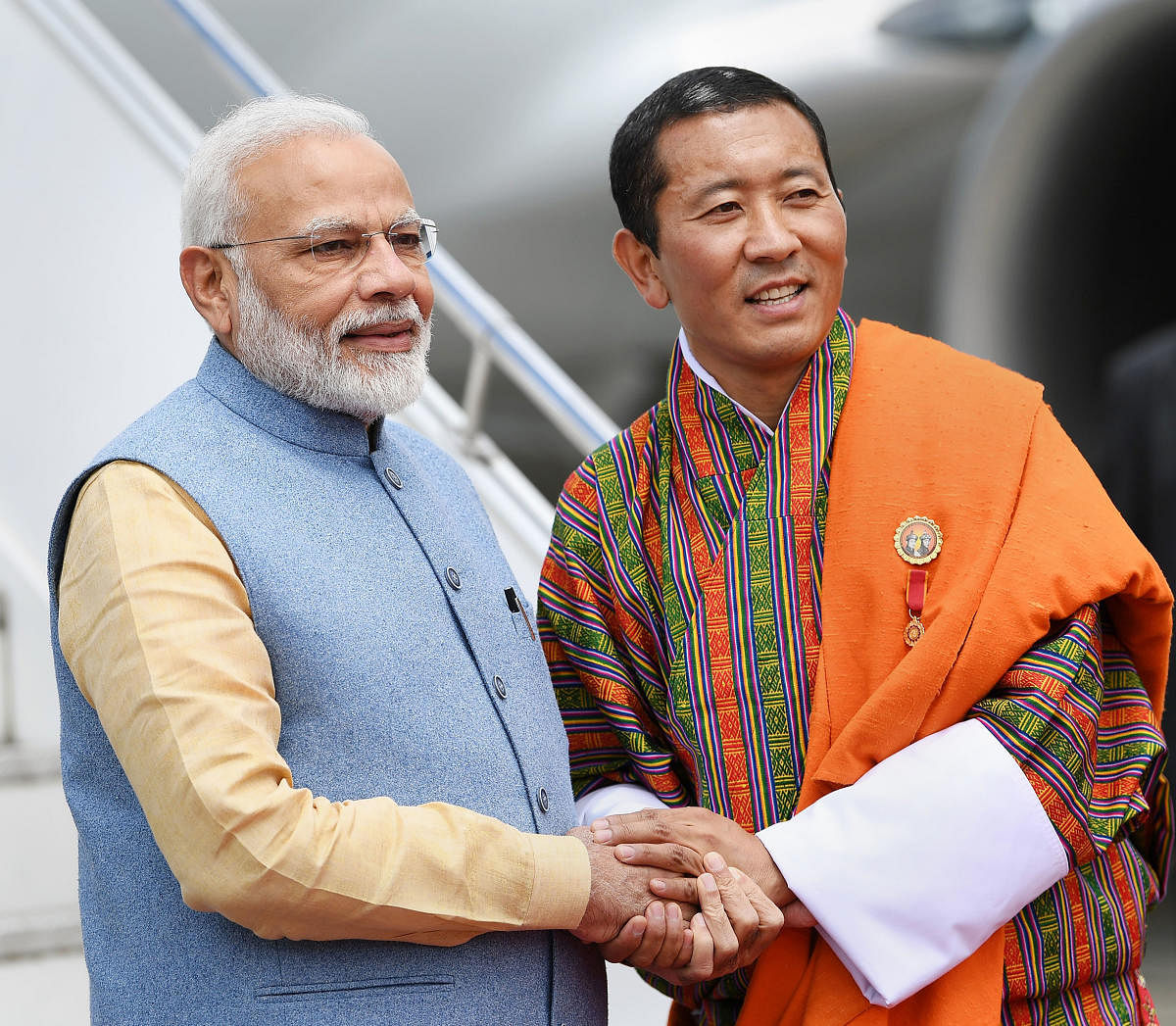Prime Minister Narendra Modi’s two-day visit to Bhutan was productive for both countries. Ten MoUs were signed in the fields of hydropower, information technology, space research, aviation, and education. These will not only energise the bilateral partnership but also open up new areas for co-operation. Hydropower cooperation is set to increase further; the two sides propose to begin discussions on the 2,500-megawatt (MW) Sankosh project soon. Modi inaugurated the 720-MW Mangdechhu hydropower project and launched the Rupay card in the Himalayan kingdom. The latter will boost Bhutan’s tourism industry, and thus its economy. A highpoint of the visit was the inauguration of the Ground Earth Station and satellite communication network, developed with ISRO’s assistance. This will enable Bhutan to hook on to the South Asia Satellite and boost its capacity for broadcast services, telemedicine, distance education, resource mapping, weather forecast, and disaster management. This was Modi’s first visit to Bhutan since the Sino-Indian face-off at Doklam in 2017. There has been some apprehension in India over reports of growing Bhutanese interest in establishing official diplomatic and economic ties with China. It is likely that Bhutan’s defence and security figured in the talks between Modi and his Bhutanese counterpart, Lotay Tshering. Indeed, India may have to put in place many initiatives in Bhutan with China in mind.
Unlike the older generation of Bhutanese, who looked to India for all their needs, Bhutanese youth are looking beyond India for education and jobs. They are tuned into K-pop rather than Bollywood. They are keen to benefit from opportunities that they have been told China’s Belt and Road Initiative is throwing up for the youth in other countries. A growing number of Bhutanese want formal diplomatic and economic ties with China. They have a ready example in Nepal.
India is concerned that China’s formal entry into the Himalayan kingdom will undermine Delhi’s influence there. It can remain influential by deploying its soft power resources. It can meet Bhutanese aspirations by offering them a democratic option and providing the expertise to build a brighter future for themselves and their country. Agreements providing for co-operation between the Royal Bhutan University and India’s IITs and other top educational institutions that were signed during Modi’s visit are a step in this direction. Importantly, India needs to show a greater understanding of Bhutanese needs. The environment is a key concern of the Bhutanese. India must ensure that its hydropower projects do minimum damage to the environment and those hydro-power sale agreements are more equitable in sharing profits. India stands to benefit by being a gentle and generous giant with Bhutan.
